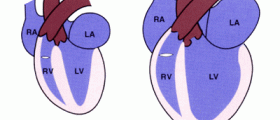
When a person suffers from congestive heart failure, his/her heart is incapable of performing its functions adequately, meeting the body's needs. Numerous diseases and conditions may lead to this state of affairs, affecting the heart's blood pumping efficiency negatively. Due to this fact, the symptoms can vary as well, the most common being tiredness, lack of physical strength, shortness of breath and swelling.
Once a person with congestive heart failure pays his/her doctor a visit, the health practitioner will look into the family history of heart diseases and the individual's medical history, performing numerous physical and laboratory tests before establishing a proper diagnosis and suggesting a suitable treatment. The treatment itself may require a heart transplantation, medications or various medical therapies.
Reasons Behind Congestive Heart Failure
This condition may be triggered by various disease which affect the heart. Basically, congestive heart failure may be provoked by diseases which make the heart muscle weaker or cause the muscle to become stiff. Also, diseases which make the heart over-strain in order to deliver sufficient amounts of oxygen around the body are considered to be the culprits as well.
The heart itself consists of two atria, one being the left and the other being the right. These create the upper chambers of the heart while the two ventricles stand for lower chambers of the heart. The latter contract in order to pump the blood. Unfortunately, certain diseases and medical conditions may impair these functions, leading to congestive heart failure and other problems involving this vital organ of ours.
Heart attacks, infections and toxins, all weaken the heart in time. Some other diseases like iron overload cause the heart muscle to become stiff being incapable of relaxing, triggering high blood pressure and thickening of the heart.
Organs Affected by Congestive Heart Failure
The salt and water excretion of the kidneys may be inhibited once the heart is not pumping enough blood. This leads to water retention and other health problems. Also, the lungs may suffer from heart failure, decreasing one's physical capabilities. The over-accumulation of fluids in the liver may result in malfunctions, making our body deprived of toxin filtration, a function this organ is in charge with. Finally, the intestines may be jeopardized by heart failure, along with body extremities, becoming prone to edema.
Treatment for Congestive Heart Failure
Salt and fluid intake modifications and maintenance are crucial if the heart of a person is not functioning correctly. Even though healthy people can benefit from 8 glasses of water a day, this can be very dangerous for people suffering from congestive heart failure. Thus, consulting with your doctor, in this case, is essential.
Exercising regularly can strengthen the heart and lead to recovery from heart failure. Generally, improving the quality of life can improve one's overall health too.
















Your thoughts on this
Loading...